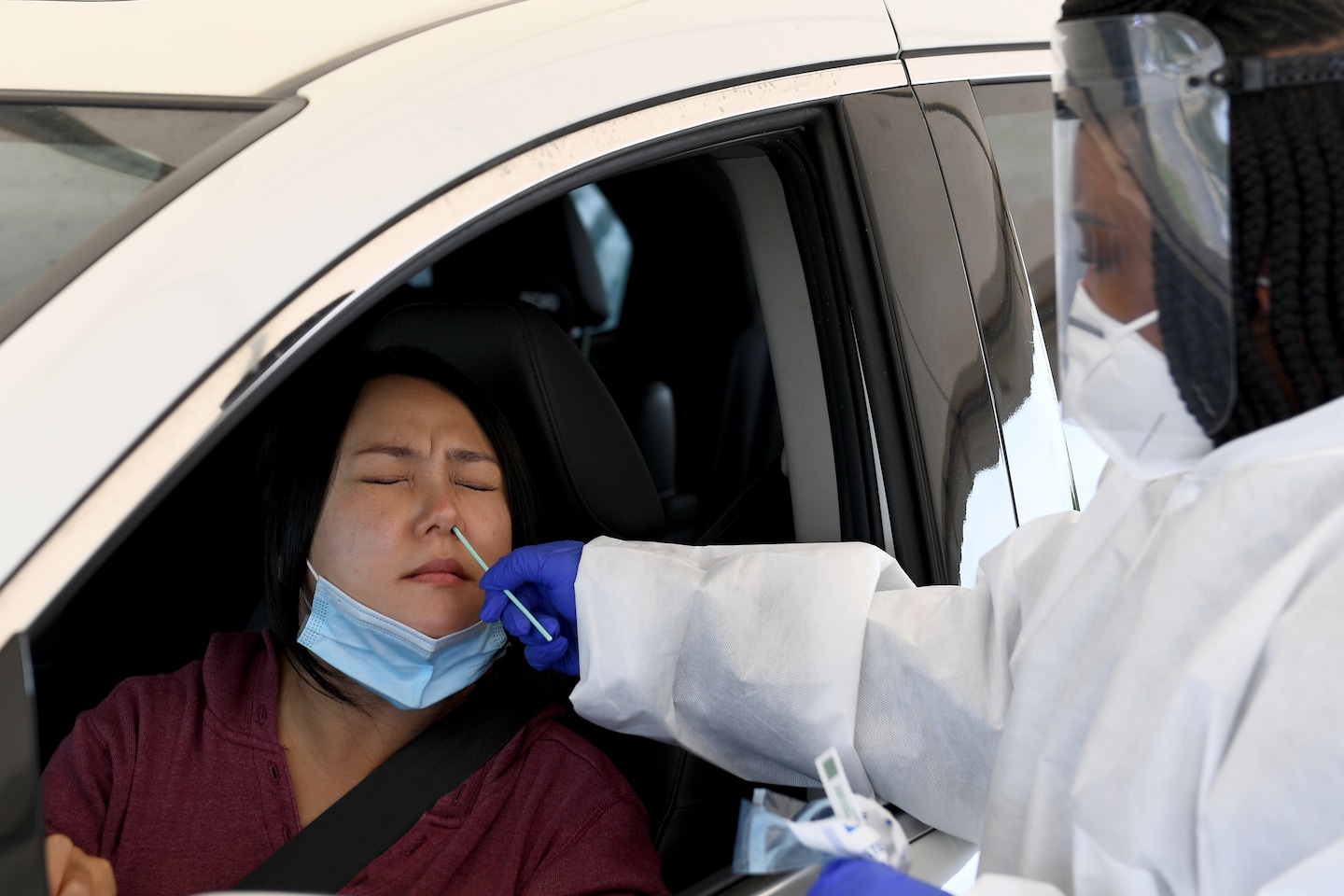Absent presidential leadership, 7 governors start to put the nation back on track

The testing situation is far from sufficient for a return to normalcy. The United States is carrying out about 700,000 tests a day, greater than when the pandemic began but still short of the 3 million or more per day that experts say is the minimum. Lately, the testing system has been swamped by a wave of infections in the Sun Belt, leading to long wait times for results. The delays, in turn, undermine the usefulness of testing: to identify the infected, isolate them, trace contacts and allow others to go about their business. The surge has also aggravated supply chain bottlenecks.
That this situation remains so fragile after five months is due to Mr. Trump’s imprudent decision to leave the pandemic response to the states. Acting alone, many states have been overwhelmed, unable to get a foothold in global markets for supplies and equipment. What makes the latest initiative noteworthy is that governors are working together to amplify their purchasing power. The governors, three Republicans and four Democrats, also include Mike DeWine of Ohio, Gretchen Whitmer of Michigan, John Bel Edwards of Louisiana, Charlie Baker of Massachusetts and Roy Cooper of North Carolina. Mr. Hogan organized the effort in his final days as chair of the National Governors Association.
The governors propose to jointly purchase antigen screening tests that can be done rapidly while the patient waits. Such screening can be valuable to check a large number of people, in places like workplaces and schools, on a regular basis. This is in contrast to the diagnostic tests using genetic material, which take longer to process, and are more useful to confirm illness. The antigen tests, which look for a protein on the surface of the virus, are less precise and can lead to false negatives between 15 and 20 percent of the time. But rapid tests can be useful for response to outbreaks. Two companies are approved by the Food and Drug Administration for antigen tests now, but the point of the governors banding together is to create a market incentive for more. No doubt, financing may be difficult, but the Rockefeller Foundation has offered to help.
There are plenty of technical details to be worked out. It will be critical for manufacturers to meet the challenge. But these seven governors — and, we hope, many of their colleagues — are showing that the nation does not have to be left adrift. Leadership counts.
Read more:






